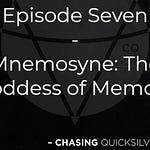The Gates of Consciousness
Excerpt:
Descartes was so paranoid that he would offend the church and become a victim of the Inquisition that he delayed publishing substantial works in his younger years and when he did publish at the age of forty-one, he censored himself, holding back the release of his most controversial ideas so as to not offend the inquisitors. He included a philosophical proof of the existence of God in his analysis, which when scrutinized logically doesn’t stand as a valid argument. It seems that he salted his published books with panderings to the church among his scientific, philosophical and mathematical work to make it seem that he wasn’t contradicting or undermining the doctrines of Rome.
Some say that later in his life Descartes arranged an explicit agreement with the prosecutors of the Inquisition in a type of peace treaty. Science would leave the domain of the soul, The “I” along with the intangible worlds of thoughts, feelings and dreams to the Church; and the church would accept that science would have dominion over the explanation of the material world including the nature of the planets and the moon and the stars.
This agreement was the source of what we understand today as Cartesian Dualism which has been the subject of scientific and religious debate for almost four centuries since. The idea of dualism being that the physical body and the soul are separate things. One for science and one for religion.
The capacities for rational and scientific analysis of nature and matter have been critical faculties for humanity to develop in the centuries since Descartes’ declaration, but we have come to a point where we can no longer ignore the more subtle aspects of reality. Religious dominion over the cultural, moral and psychic aspects of our lives has long-since ceased to be immune from criticism by thoughtful people. The tools of punishment, the stocks, the rack and the stake are distant memories but now neither Church of Reason nor the Church of Rome have any credible understanding of the scape of mind. The young fields of Psychology, Neuroscience and Cognitive Science busy themselves with relative trivialities like, where in the brain do we store memories? and from where do we derive motivation? They focus on the structure of the brain and the mechanisms of mood but not upon navigating psychic space or upon exploring and optimizing our mental maps.













Share this post